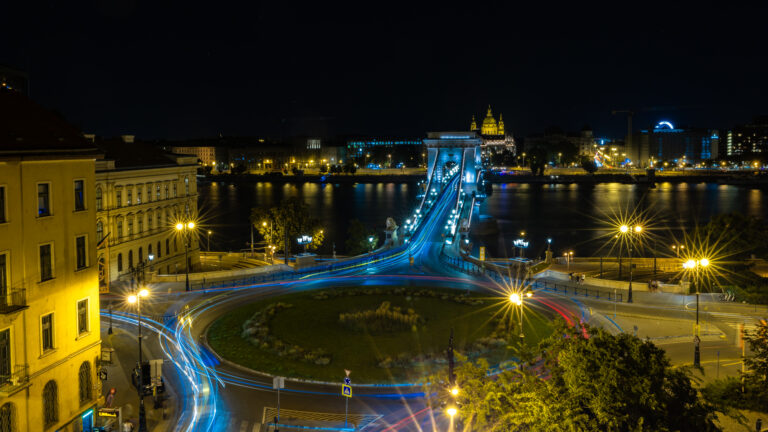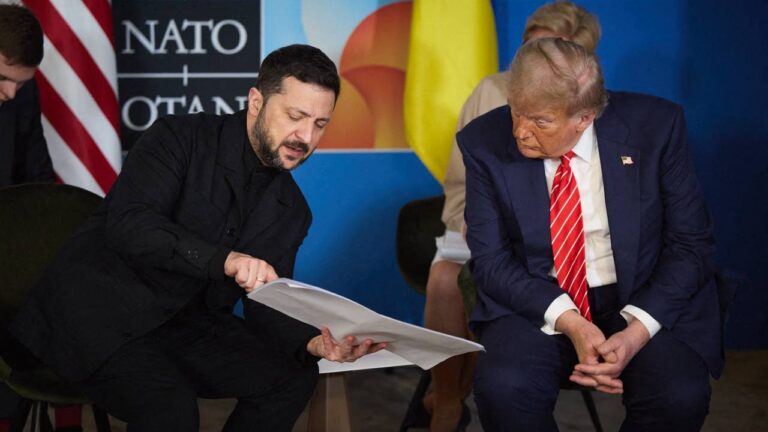A tug of war for Georgia is underway between the European Union and Russia. Hungary may hold the key for Europe’s victory through its energy alliance with Tbilisi as well as their similar histories.
The second iteration of CPAC-Hungary this year in Budapest hosted a keynote speaker not many expected: Irakli Garibashvili, the Prime Minister of Georgia. Considering the only other sitting head of state to speak was Hungary’s own Viktor Orbán, Garibashvili’s presence is an interesting one.
Most write off the event as an ideological gathering of the far-right, with Orbán and Garibashvili’s ‘bromance’ being a microcosm of the anti-LBTQ/wokeness theme of the convention. Both Orbán and Garibashvili face criticism of creeping authoritarianism and suspicion over continuing dialogue with Russia amidst its excommunication from most of the diplomatic world over its invasion of Ukraine. Hungary and Georgia are thought by most as just local outcasts from Europe’s liberal-leaning elite banning together to resist it.
But there is more to this ‘bromance’ beneath the surface. Or in this case, beneath the Black Sea.
Europe’s boycott of Russian fossil fuels has left it with a deficit in energy. Wind and solar, liquid natural gas, nuclear, and a handful of other energy source potentials are being considered in Brussels for replacing Moscow’s resources. Right now, any providers are being contemplated.
Hungary, along with Romania, is looking east towards the Caucuses. Georgia and Azerbaijan recently signed a pact with Hungary and Romania last December on circulating electricity from wind farms to Europe via an underground cable to be built beneath the Black Sea. Should the project come to fruition, it will be the longest one in the world. A feasibility study is scheduled to be completed by the end of the year.
The proposition has received little fanfare. Georgia is not looked upon favorably by the whole of the European Union, even with the support of its poster-child member state, Germany. Corruption still strangles the nation’s political system, a commonality for many ex-Soviet states.
However, Europe’s idealistic objections to closer relations with Georgia over its politics may end up being relegated to second place in priority as it comes to terms with geopolitical realities. The European energy boycott supported by the U.S. has undeniably impacted Russia’s economy and left it isolated from the West. However, it has not achieved the original goal of changing Putin’s cost-benefit calculations with regards to prosecuting the Ukraine conflict. The antagonism between Moscow and the continent’s numerous capitals looks to be the new reality for a long time to come, leaving no chance of returning to Russia’s fossil fuels. Europe cannot afford to be too picky in its search for new energy sources.
The new deal is focused on energy affairs,
but it holds the potential to pave the way for building bridges with Europe, both literally and figuratively.
Such an opportunity is desperately needed by Tbilisi. The Russian invasion of Ukraine has been a wake-up call to the rest Europe, reminding them that Putin’s dreams of a revived Russian empire are far from dead. It is a realization that Georgia has long hoped would come.
The current conflict is not the first instance in which Russian troops have acted upon Putin’s vision. Nor was it the brief but brutal crackdown of democracy protesters in Kazakhstan by Russian ‘peacekeepers’ at the behest of the nation’s Kremlin-friendly government. Neither was it the Wagner Group’s various military adventures in the Middle East and Africa. It wasn’t even the first incursion into Ukraine during the 2014 annexation of Crimea.
Russia’s first attempt at reclaiming its empire was in fact in Georgia in 1992 when its troops invaded and occupied Abkhazia. They attacked again in 2008, returning for South Ossetia.
The two separate incidents were a preamble of sorts for the Russian doctrine of expansion in the post-Soviet era: declaring that Russian minorities in other countries were under threat by the hand of corrupt, western-backed post-Soviet governments, and following with ‘special military operations’ to establish safe-zones to protect them. Georgia, a far smaller country than Ukraine, had no chance of stopping the Russian military. Then-U.S. President Bush’s deployment of American forces to Tbilisi in response was the only thing that saved Georgia’s independence. Russia still controls Abkhazia and South Ossetia today.
Since then, Georgia has sought any opportunity to remain close to the West to stave off Russia’s ambitions. Membership into the European Union would be the ultimate prize. Aside from the incredible economic benefit of being a part of the trade bloc, there is also the matter of regional influence. While Moscow’s troops sit just north of the border, more than 100,000 Russians have flooded the small Caucuses nation since the Russo-Ukraine War began. The vast majority of them are fleeing Putin’s regime and the danger of being drafted to serve it, but that has not alleviated the fears of Russification that Georgians dread.
Georgia’s concern of being overrun by a hostile Russia is one Hungary knows all too well from its own history.
Since gaining independence in 1989, Hungary has sought to protect itself by joining powerful alliances such as the European Union and NATO. Georgia plans to copy the doctrine.
Such ambitions have run into roadblocks from Brussels. The European Union has kept Georgia at arms length due to questions of corruption and human rights violations by the government. Georgia’s ‘foreign agent law,’ which human rights organisations claimed emulates Russia’s own oppressive legislation, was a prominent example. The EU has also demanded that Tbilisi makes efforts at ‘de-oligarchisation’ and reducing political polarisation in order to be considered for EU candidacy. Tbilisi has acquiesced to these calls, dropping the foreign agent law after street protests against it and passing a ‘de-oligarchisation law,’ despite concerns raised by the Vienna Commission. While Tbilisi makes attempts at soothing the concerns of Brussels, the European Union may have its decision guided more by necessity rather than values in the end. With the continent now abstaining from Russian energy sources, it will need to find them where it can.
Hungary’s support for Georgia makes sense in a number of ways. With both nations having brutal histories of Russian domination, Hungary understands the struggles Georgia has had in coming out of Moscow’s shadow after so many years behind the Iron Curtain. While Hungary offers support to a fellow former communist satellite state to realise a future better than its past, Georgia offers Hungary and Europe the resources needed to maintain that future. Both nations, along with Romania and Azerbaijan, all have brutal histories of Russian occupation. Through this deal, and others that could follow it, these four former communist states may help save Europe from experiencing the brutality they endured under Moscow’s boot, along with ensuring that they do not relive it themselves.








